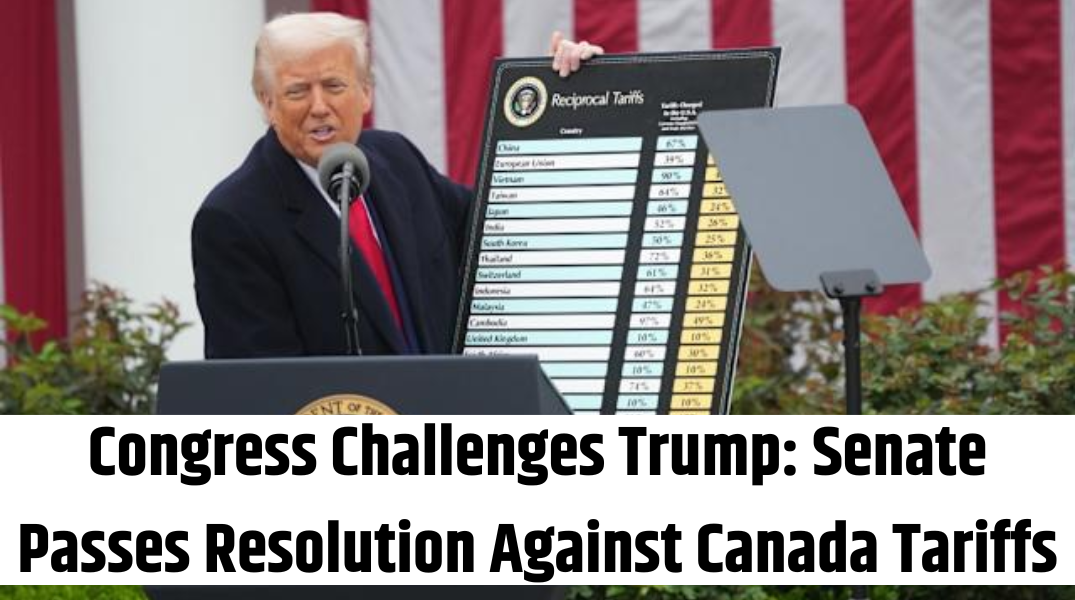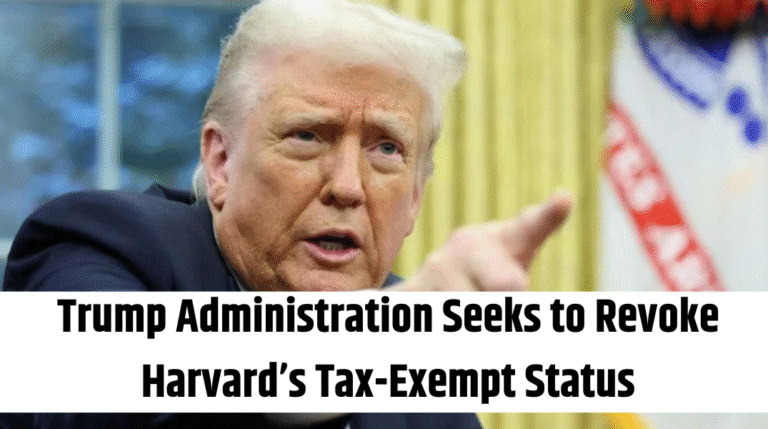
The U.S. Senate passed a resolution on Wednesday aimed at preventing President Trump from imposing tariffs on Canadian goods, but the measure is unlikely to gain traction beyond the chamber.
In a 51-48 vote, the Senate approved the resolution, with four Republican senators—Rand Paul (Ky.), Mitch McConnell (Ky.), Susan Collins (Maine), and Lisa Murkowski (Alaska)—breaking ranks to support the effort alongside Democrats. The resolution challenges Trump’s use of a national emergency declaration on fentanyl smuggling to justify the trade restrictions.
Despite its passage, the resolution is largely symbolic. Trump has already vowed to veto the measure, and the Republican-led House is unlikely to bring it to a vote. Paul, a co-sponsor of the bill, accused House leaders of using procedural tactics to block the resolution, calling their efforts “trickery and chicanery.”
In an interview with Fox News, Paul emphasized that the issue extends beyond trade policy. “The fundamental question is whether a president can unilaterally raise taxes without congressional approval,” Paul said. “Tariffs are taxes, plain and simple.”
His Democratic co-sponsor, Sen. Tim Kaine of Virginia, echoed that sentiment, arguing against governance through emergency declarations. Kaine suggested that Trump has other avenues to address trade disputes, citing the U.S.-Mexico-Canada Agreement (USMCA) as a diplomatic tool the president himself championed during his first term.
Trump, meanwhile, remains firm in his stance, defending his tariff strategy as a necessary tool for economic leverage. On Wednesday, he announced new “reciprocal” tariffs targeting several countries, including major allies like Japan, Israel, and European Union nations.
Opponents of the Senate resolution, such as Sen. Mike Crapo (R-Idaho), insist that the national emergency over fentanyl smuggling remains valid and that the resolution misrepresents the issue. “This isn’t just about trade,” Crapo said on the Senate floor. “It’s about whether or not an emergency exists. And I strongly believe that it does.”
Trump took to Truth Social early Wednesday morning to denounce Senate Republicans who backed the resolution, accusing them of undermining national security and siding with Democrats. He called out Paul, McConnell, Collins, and Murkowski by name, claiming they were “playing right into the hands of the Radical Left and drug cartels.”
He also dismissed the resolution’s chances of success, writing, “This bill isn’t going anywhere because the House won’t approve it, and I will never sign it.”
With little chance of becoming law, the resolution serves more as a political statement—underscoring ongoing divisions within the Republican Party over Trump’s trade policies and executive power.




